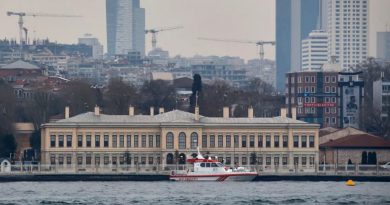The Saudi-Yemen Bond: Clarifying Chris Murphy’s Inaccurate Information
by Mohammed Al-Jabir – Saudi Ambassador to Yemen
Since the 1960’s, Saudi has supported the legitimate government in Yemen, including the Zaidi Imams.
Upon reading Chris Murphy’s tweets, it is evident to me that much of the inaccurate information that has been presented to him has distorted the facts on the ground. As Ambassador to Yemen, I feel it is my duty to set the record straight.
1/ Okay, in a few tweets I'm going to try to explain what's going on in Yemen today, so you have some knowledge to counter this claim that America needs to bomb Iran because the Houthis bombed Saudi Arabia. It's complicated, but now you need to know.
— Chris Murphy (@ChrisMurphyCT) September 16, 2019
Since the 1960’s, Saudi has supported the legitimate government in Yemen, including the Zaidi Imams. The Kingdom consistently supported successive government since then irrespective of sect, ideology, and form of government so long as they are not militia operating out of the state’s organs.
Since the 1970’s, KSA strongly supported the Yemeni economy and implemented many development and infrastructure projects worth billions. For example, KSA installed the electric grid that powers all of northern Yemen. We donated $3.5B (50% of total donations) to the Friends of Yemen.
In the 1980’s, the Houthi movement was not yet formed. KSA did not send scholars to Yemen or build missionary schools, but rather, it built the Al-Salam Hospital in Saada in 1982, which still operates today. Also Zaidi scholars used to print Zaydi books in KSA.
The Iranian regime established the terrorist Hezbollah group in Lebanon, and found in it a useful way to advance their interests and regional terrorism.
Iran worked to copy the Hezbollah model and attracted extremist Yemeni figures, like Badr al-Din al-Houthi and his sons Hussein and Abdulmalik, later pushing Hussein to declare rebellion against the Yemeni state after the US invasion of Iraq in 2003.
The Iranian-backed Houthi militias raise slogans that carry the same Iranian extremist thought in terms of phrases, colors/symbols. Their books include extremism, hostility to America and a call for Jihad. As AlQaeda and ISIS, their school curriculum is a preparation for Jihad.
The Kingdom has not intervened in the face of multiple Houthi rebellions against the Yemeni government in 2004-2009, but rather called for addressing the dispute and contain the Houthis, who constitute a small minority within the Zaidi minority in Yemen.
However, the Iranian regime pushed them to attack the Kingdom’s borders and kill border guards. KSA defended the southern borders while working on ending the conflict between the militias and the Yemeni government at that time.
By presenting the Gulf Initiative in 2011, which was accepted by the Yemeni government and all Yemeni political factions, the Kingdom was able to stop a civil war and enabled the peaceful transfer of power from the former President to the current President of Yemen.
The GCC Initiative was endorsed by UNSCR 2014 and the international community, leading to a national Yemeni dialogue that included all Yemeni components, including the Houthis.
Since 2012, the Kingdom has fully supported the political process in Yemen under UN auspices with more than $7 Billion, including 3.2 Billion for oil derivatives for the operation of power plants, 1 Billion for the Central Bank, and 3 Billion for development projects in multiple sectors.
After two years of support from the Gulf, the UN, and the US in ensuring the success of the political process/transitional the Houthis attacked cities in northern Yemen, in 2014, and violently took control of the Yemeni capital Sana’a.
Nevertheless, and during the Iranian-backed Houthi militia’s control of the Yemeni capital Sana’a, the UN presented the “peace and partnership agreement”. The Yemeni government, Yemeni political factions, and the Houthis signed the agreement on September 21, 2014.
The UN agreement granted six seats in the government of PM Khalid Bahah to the Iranian backed militia. Additionally, the agreement granted the Houthis a position of advisor to Yemeni President.
The international community supported the government of Khalid Bahah, which implemented the UN agreement. In January 2015, the Houthis reneged on the agreement and detained the Yemeni president and members of government, and took control of state institutions by brutal force.
In March 2015, the Houthi militia signed an agreement with the State of Iran to conduct 28 weekly flights between Sanaa and Tehran, which had been suspended since 2003. Aircrafts from Iran’s Mahan Airlines landed in the capital Sana’a.
The President fled Sana’a to Aden. He asked the Houthis to return to the dialogue table and stop the fighting, however, Iran ordered the Houthis to move south and control the Bab Al Mandab strait (Red Sea) and Aden (Arabian Sea).
On March 26, 2015, Operation Decisive Storm began. The Kingdom continued to support the efforts of the UN Special Envoy to Yemen in order to reach a political solution between Yemeni political parties in Biel and Geneva 2015.
In 2016, KSA invited the Houthis to the Saudi city of Dhahran Aljanoub on the border with Yemen, in order to establish a Truce Committee under the auspices of the United Nations and negotiated with the Houthis in Kuwait.
After more than 100 days in negotiations in Kuwait between Yemeni parties, the Houthis refused to sign and left the table.
The Houthis rejected all proposals for a political solution in 2017, including handing over the ports of Hodeidah to the United Nations, or returning to sit at the negotiating table, even shooting at the UN envoy’s car.
As a result of the military pressure by the Yemeni and Coalition forces, the Houthis agreed to return to the dialogue table and signed the Stockholm agreement in 2018.
The Iranian-backed Houthi militia refused to implement the Stockholm agreement and exploited it to continue smuggling Iranian-made weapons, missiles and drones through the Hodeidah port and abused its financial revenues to support their war effort against the Yemeni people.
Iran provided financial support and drone/missile technology to the Houthi militias and sent trainers to oversee their terrorist attacks against civilian targets in the Kingdom, including houses and schools, Riyadh and Abha airport, and a desalination plant.
Iran instructed the Houthis to reject all political solutions to the Yemeni crisis.
Since 2014 alone, the Kingdom has provided more than $14 billion in relief and development aid to Yemen and supported the Central Bank of Yemen with $2.2 billion to improve the exchange rate of the riyal.
The Kingdom currently employs more than 2 million Yemenis. More than 600,000 Yemenis fled the Houthi militia to the Kingdom, which granted them visas that allow them to work.
Yemenis in the Kingdom transfer more than $4 billion annually to their families inside Yemen, bringing the number of beneficiaries to more than half of the Yemeni people and KSA continues to grant work visas in the tens of thousands to Yemenis from all governorates.
Saudi Arabia continues to offer its full support for the efforts of Office of the Special Envoy of the Secretary-General for Yemen (OSE Yemen) in implementing the Stockholm agreement, and in reaching a comprehensive political solution based on the GCC initiative, the outcomes of the Yemeni national dialogue, and UNSC 2216.
Mohammed Al-Jabir is a Saudi Ambassador to Yemen. He regularly tweets under @mohdsalj
Article compiled from the series of Tweets Al-Jabir did refuting U.S. Senator from Connecticut Chris Murphy who raised dubious allegations against Saudi Arabia’s intervention in Yemen.



